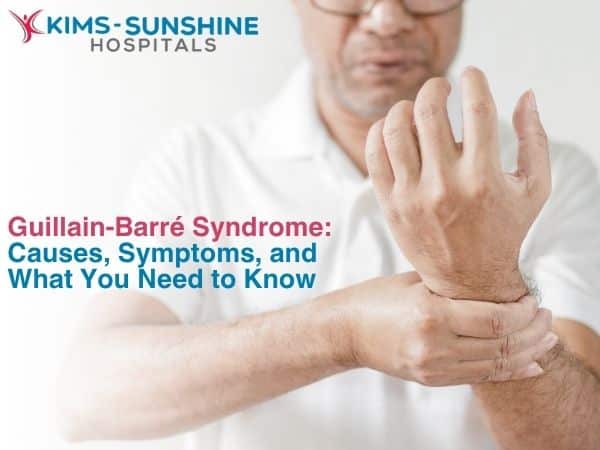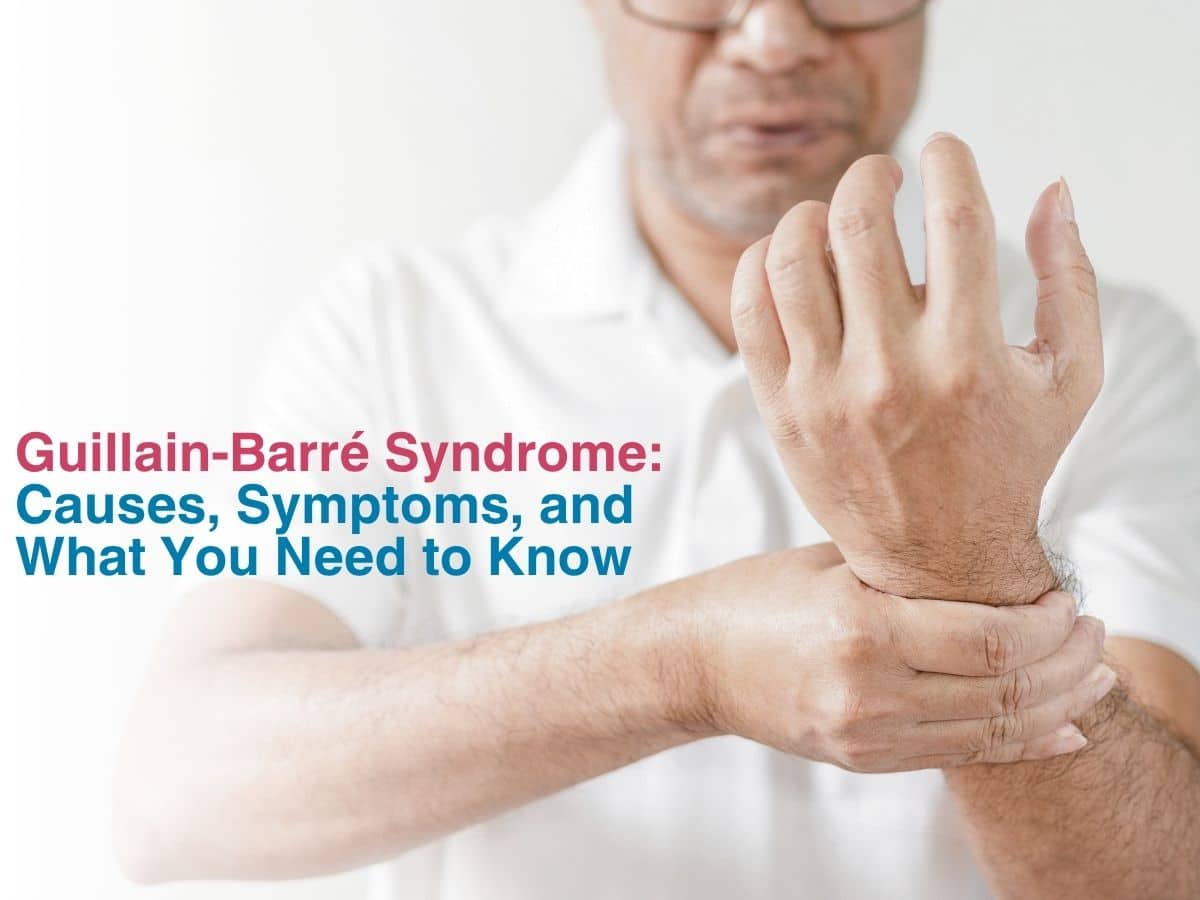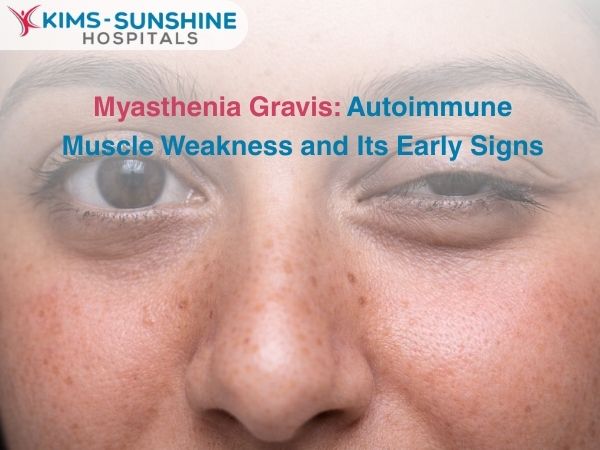
Guillain-Barré Syndrome: Causes, Symptoms, and What You Need to Know
 Guillain-Barré Syndrome (GBS) is an autoimmune disorder where the immune system attacks the peripheral nervous system as it thinks it is a foreign entity and is hence dangerous. Research is still trying to understand why and how this happens, but some studies have pointed to a phenomenon called ‘molecular mimicry’- where some structural aspects of the protein in the pathogen match those found in the axons found in nerve endings in the spinal cord. Guillain-Barré Syndrome can begin as a result of a person suffering from common infections like gastroenteritis, common cold, COVID-19, Zika, or even bacterial infections involving Campylobacter jejuni which can cause diarrhoea and food poisoning. The first bunch of cases were diagnosed in Mumbai and in Pune, while there has been widespread panic all over because of extensive media coverage. The cases in India have probably been caused by some pathogen that spreads from undercooked meat and unclean water sources or poor sanitation. With the Maha Kumbh Mela happening this year, many experts fear a massive outbreak due to contaminated water and transmission using the faecal-oral and droplet routes respectively.
Guillain-Barré Syndrome (GBS) is an autoimmune disorder where the immune system attacks the peripheral nervous system as it thinks it is a foreign entity and is hence dangerous. Research is still trying to understand why and how this happens, but some studies have pointed to a phenomenon called ‘molecular mimicry’- where some structural aspects of the protein in the pathogen match those found in the axons found in nerve endings in the spinal cord. Guillain-Barré Syndrome can begin as a result of a person suffering from common infections like gastroenteritis, common cold, COVID-19, Zika, or even bacterial infections involving Campylobacter jejuni which can cause diarrhoea and food poisoning. The first bunch of cases were diagnosed in Mumbai and in Pune, while there has been widespread panic all over because of extensive media coverage. The cases in India have probably been caused by some pathogen that spreads from undercooked meat and unclean water sources or poor sanitation. With the Maha Kumbh Mela happening this year, many experts fear a massive outbreak due to contaminated water and transmission using the faecal-oral and droplet routes respectively.
What Causes Guillain-Barré Syndrome In Adults
Guillain-Barré Syndrome is an after effect of various infections that can be caused by multiple pathogens like campylobacter, norovirus, E.coli, zika etc. though the exact mechanism of why it affects only certain individuals and not everyone exposed to the same virus or pathogen remains unknown. It could be attributed to the fact that only some people deal with autoimmune disease as their immune system is overworking itself. Very rare cases of people getting vaccinated for COVID-19 or Zika or other such infections and then developing GBS have also been reported. In India, the number of cases has crossed 100, but a proper number or cause is still yet to be determined.
Early Signs And Symptoms Of Guillain-Barré Syndrome
The first set of symptoms often are nausea, an upset tummy, a viral infection or something similar. The symptoms related to weakness and sensation changes appear much later- a few days, weeks or months later. Weakness can mean that you are not able to stand up for a long time, or climb stairs or do anything that requires good coordination. Symptoms begin from the face and move to the lower parts of the body, or their legs may be the first to get affected. The sensation related issues begin next- people may think they have bugs crawling all over, have pain or tingling among other symptoms, while children may refuse to move due to the pain.
Neural coordination is greatly affected, so the next stage is when people have vision changes, speech or chewing related changes, greater pain at night, heart rate changes, fluctuating blood pressure, incontinence and being unable to control the bladder or the urge to poop, among other symptoms.
How Is Guillain-Barré Syndrome Diagnosed And Treated
Your doctor will first take a detailed medical history and do other tests to diagnose GBS. The initial set of symptoms are so similar to commonly encountered viral or bacterial infections, that it can be hard to differentiate between them all. With respect to weakness and more pronounced symptoms, they may check where the weakness began and if it is affecting both sides of the body or just one. If a great loss in reflex or progressive muscle weakness is noted In a span of a few days, then the doctor may suspect GBS and not look at other long-term disorders. They may also recommend MRI, CSF analysis and nerve conduction velocity tests to check for basic reaction times. If they are much slower than usual, then it may mean that your nerves are damaged.
Treatment involves 2 approaches- intravenous immunoglobulin (IVIg) therapy or plasma exchange. Plasma exchange involves taking blood out of the body, separating the cells and plasma and then putting them back in the body with some replacement fluid, to get rid of the excess antibodies. IVIg is when immunoglobulin proteins are injected into the body, to behave like a smoke screen and keep the immune system from attacking nerve tissue, while also helping it get rid of rogue immune cells and allowing the body to recover faster.
Can Guillain-Barré Syndrome Be Cured Completely?
No, there is no cure for GBS. But symptomatic management can be done – like using a ventilator when someone is not able to breathe normally, while a heart monitor and other instruments can be used to monitor heart rate and any changes that may occur. Therapy with immunoglobulins or plasmapheresis can be used to give the immune system a boost and help improve function. It is however super important to remember that physical therapy is needed for most people so they can regain normal movement and go about their daily routines. They may need assistive devices or other forms of adaptive technology to help them. Though GBS can affect all people, older individuals are more at risk of developing lasting muscle weakness and related issues.
Conclusion
The long-term effects of Guillain-Barré syndrome on mobility cannot be understated, ever. It is hence crucial to set realistic expectations of what you can and cannot get done after recovery. Some people may need therapy to offset emotional trauma. As with many other chronic conditions, GBS can only be managed. Most people get better within a few months or years, but others may have to deal with weakness or extreme fatigue in the long term. Also, some of them may have to deal with GBS symptoms much later, though recurrence is very rare.






